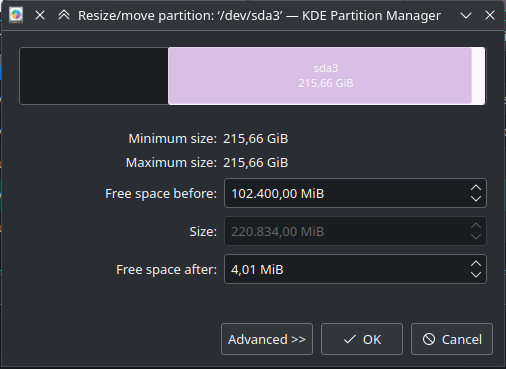this post was submitted on 03 Aug 2023
21 points (95.7% liked)
Linux
45595 readers
656 users here now
From Wikipedia, the free encyclopedia
Linux is a family of open source Unix-like operating systems based on the Linux kernel, an operating system kernel first released on September 17, 1991 by Linus Torvalds. Linux is typically packaged in a Linux distribution (or distro for short).
Distributions include the Linux kernel and supporting system software and libraries, many of which are provided by the GNU Project. Many Linux distributions use the word "Linux" in their name, but the Free Software Foundation uses the name GNU/Linux to emphasize the importance of GNU software, causing some controversy.
Rules
- Posts must be relevant to operating systems running the Linux kernel. GNU/Linux or otherwise.
- No misinformation
- No NSFW content
- No hate speech, bigotry, etc
Related Communities
Community icon by Alpár-Etele Méder, licensed under CC BY 3.0
founded 5 years ago
MODERATORS
you are viewing a single comment's thread
view the rest of the comments
view the rest of the comments

I don't have a FAT32 partition available at hand to test this out, but couldn't you first move the partition to the left, and then extend it? Because IIRC FAT in general whines if you change its starting point, so you need to actually tell it "move yourself, you fat32ass!".
Also note that, for most purposes, you'd be better off with NTFS than FAT32.
thanks for the reply! I'll try to move it then. But without moving it, shouldn't I be able to extend it right by 4.01Mb?
XD
Why this? isn't NTFS primary a windows partition type?
Because FAT32 has a 4GB file size limit, it's generally slower, and it's easier for hardware faults to corrupt files in a FAT32 filesystem.
Usually I wouldn't bother with FAT32 unless some device specifically requires it, but this is uncommon nowadays. (Be sure to check it out first though, just in case, before ever thinking about changing filesystems!) And nowadays, even if NTFS was originally a Windows partition type (and FAT32 a DOS/W9x one), Linux has excellent support for both, both writing and accessing.
It's probably aligning the round edge to the hardware. Odds are that you can turn this off (in gparted you can), check if there isn't something about this in "Advanced >>".
Either way, I wouldn't worry too much. It's just 4MB.
I have an mid 2000's car stereo with USB support that only supports fat32
Cases like this are why I told OP to check it out first, just in case. Or why I said that devices requiring it are uncommon, not non-existent.